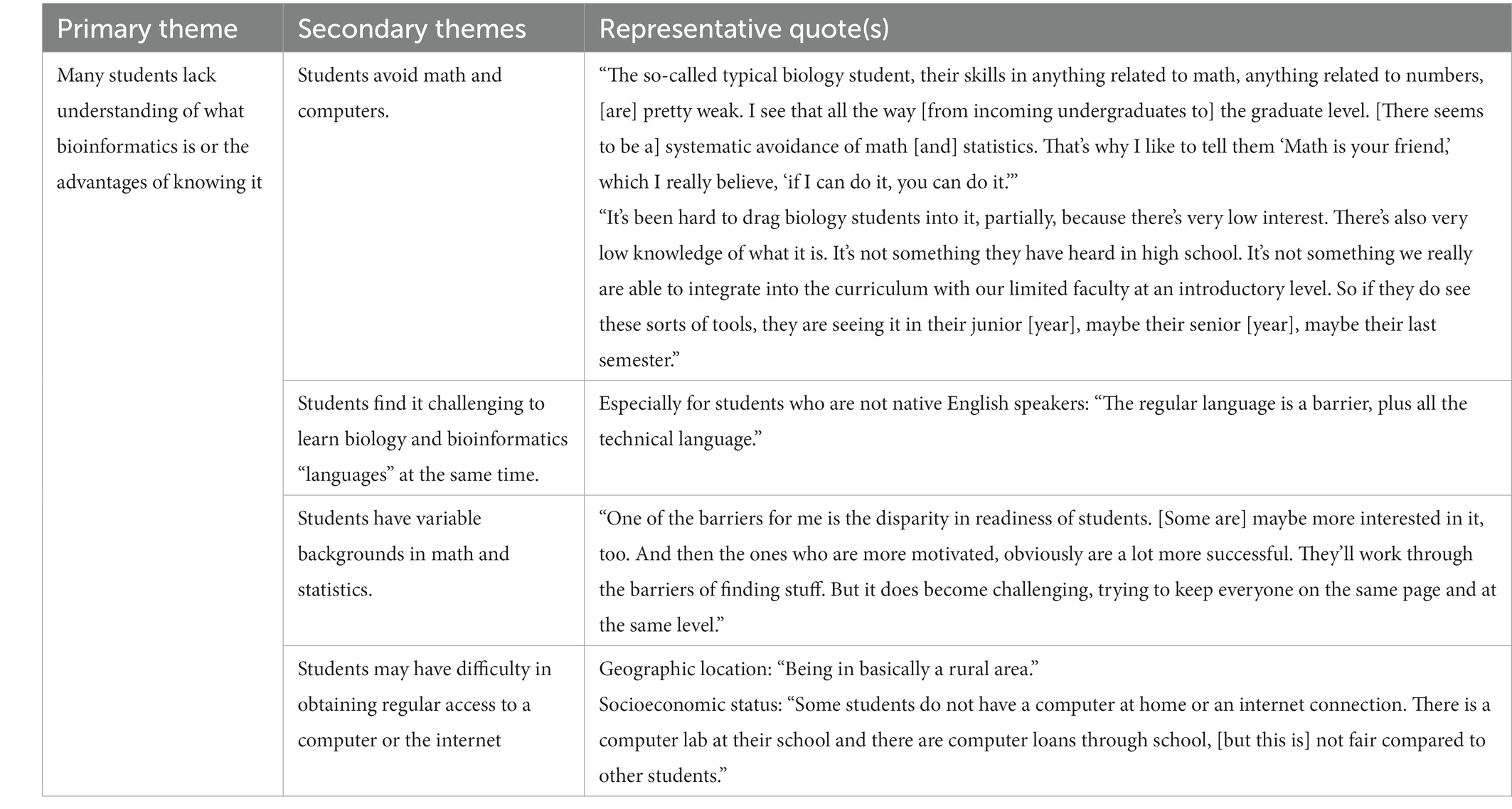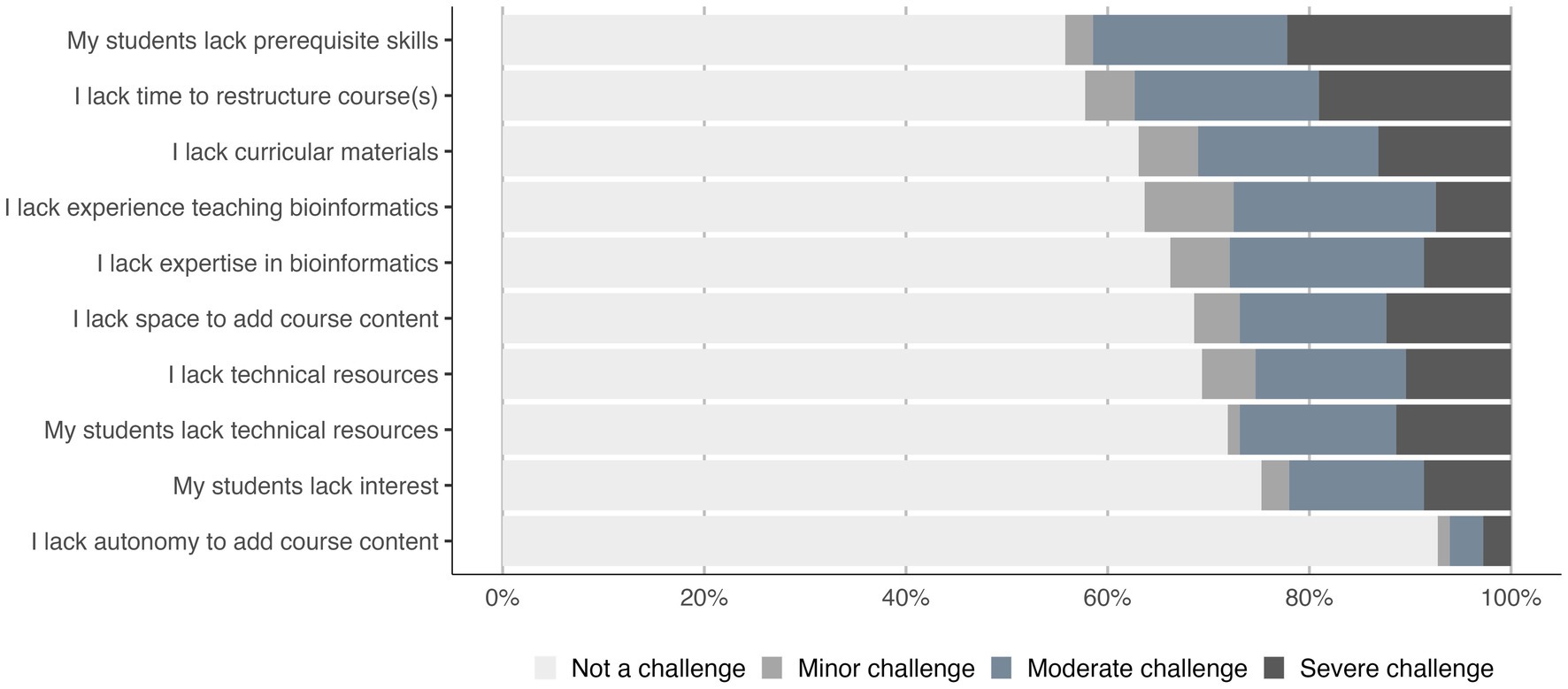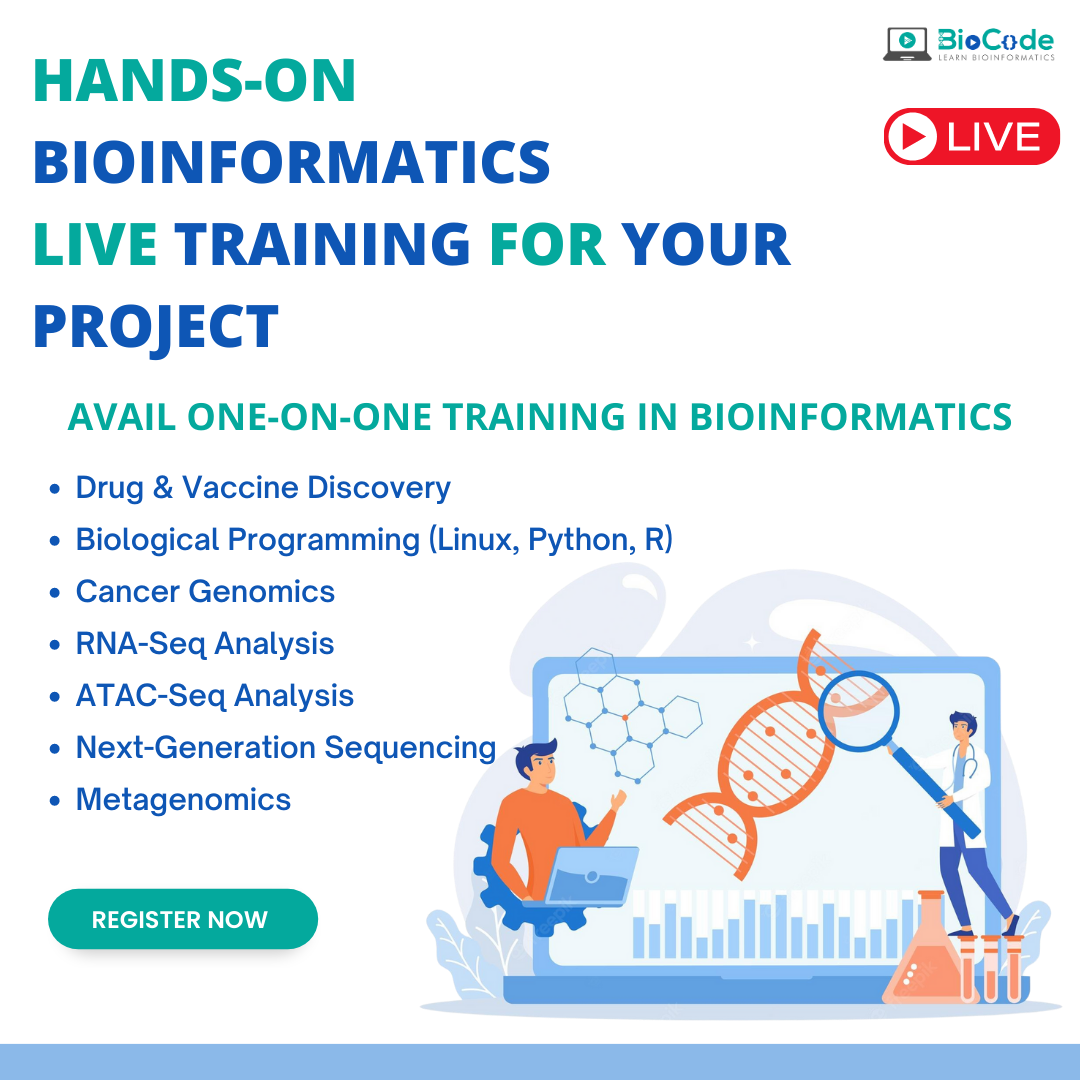The Ultimate Guide To Bioinformatics Tutor
The Ultimate Guide To Bioinformatics Tutor
Blog Article
Bioinformatics Tutor for Dummies
Table of ContentsNot known Facts About Bioinformatics TutorBioinformatics Tutor Fundamentals ExplainedSome Known Details About Bioinformatics Tutor Bioinformatics Tutor - QuestionsThe smart Trick of Bioinformatics Tutor That Nobody is Talking About
Of the total individuals associated with the training, 80% were trainees from public higher education and learning establishments, while the continuing to be 20% originated from private organizations. To certify for a certificate of involvement, trainees were called for to go to a minimum of 90% of the total training hours. As a result of this need, an impressive 95% of the participants successfully gotten their certifications, having not only met the minimum attendance requirements however also completed all assigned activities throughout the training.
Throughout the height of the COVID-19 pandemic, especially in between June and August 2020, the project group was charged with organizing specialized training in bioinformatics. This training was particularly aimed at students from the study team Nucleus for Research in Applied Computing at the Federal University of Pará (UFRA) The adaptation to remote understanding platforms because of the pandemic created a possibility to discover brand-new mentor approaches and digital tools that improved both reach and effectiveness.
To reply to the expanding need in the computing and life sciences fields, a sophisticated training course was presented in 2020 titled Intro to Artificial intelligence. This program was developed to give an accessible yet thorough review of Artificial Intelligence techniques, especially as applied in bioinformatics. The program was accomplished over three months, from October to December 2020, and was delivered completely online via the Google Meet system. This digital format enabled engagement from pupils throughout Brazil, numerous of whom could not have had the possibility to attend in-person sessions.
The Definitive Guide for Bioinformatics Tutor
A significant function of this course was its emphasis on hands-on discovering. Roughly 50% of the total training hours were committed to sensible activities where pupils constructed intelligent versions and applications in an array of scientific domains, consisting of genetics, molecular biology, and ecological information evaluation. Widely used devices and structures such as Spyder, Google Colab, Jupyter Notebooks, and Orange were incorporated right into the coursework. These systems enabled trainees to take part in real-time data control, design training, and formula testing.
Sixty of them were affiliated with various higher education and learning organizations in the state of Pará, while the continuing to be twenty came from establishments found in 5 other Brazilian states. By presenting Artificial Knowledge in a sensible and appropriate context, the initiative served to link the space between theory and real-world application, supplying students with a solid structure for future research or work in the field.
The training initiative created component of a broader academic outreach initiative called the Bioinformatics when traveling project. This task has, over the years, presented lots of trainees to the world of bioinformatics and computational biology. The occasions held under this umbrella initiative have taken area throughout multiple areas and years, as summarized in Table 1 (List of events, locations, years, and total varieties of pupils and teachers)
Numerous of these groups, originally brought together by their involvement in training occasions, have actually considering that gone on to create independent scientific study in collaboration with local academic establishments. The training not only cultivated scientific thinking within the context of bioinformatics but additionally triggered collective connections that expanded beyond the training setting.
The smart Trick of Bioinformatics Tutor That Nobody is Talking About
The job itself was conceived and organized by MB and RR, that looked after the planning and execution of each step. Lectures were delivered by a multidisciplinary group check this site out including megabytes, FA, EF, KP, JS, DM, SN, LP, LG, A/C, rr, and ih. The same team, excluding IH and RR, likewise functioned as tutors for the useful training components. Financing for the job was provided via the give 88887.200562/ 2018-00 from CAPES. The authors prolong their gratitude to every person who added to the realization of this project, whether directly or indirectly, since its inception.
The Federal University of Pará's Workplace of Research study (PROPESP/UFPA) likewise gave economic assistance, especially for the production of the last manuscript. The writers check my reference proclaim no business or monetary disputes of interest that can have influenced the research. All analyses and opinions revealed in this post are entirely those of the authors and do not always show those of their particular establishments, the publisher, editors, or customers involved in the publication process.

Getting My Bioinformatics Tutor To Work
From a pedagogical point of view, the teaching technique used in the training was purposefully interactive. Classes were conducted in a fashion that urged trainee engagement and conversation, exceeding rote memorization to check out just how concepts are developed, applied in day-to-day life, and evaluated in scholastic setups. The instructional ideology concentrated on nurturing both solid and having a hard time trainees, supplying individualized support, and structure confidence via sustained mentorship and perseverance.

Each group, being composed of around 36 individuals, was sustained by 3 mentors-- the majority of whom were postdoctoral scientists with specific knowledge. These coaches not only assisted create the group projects but likewise facilitated their implementation, making sure that each research inquiry was both properly difficult and appropriate. The goal was to provide a biologically practical context that participants might check out through open-ended goals and access to curated datasets.
For extra insights right into the methodology and outcomes of this project-based discovering approach, readers are directed to S1 Text, which consists of in-depth descriptions of the instructional framework, assessment methods, and job useful site motifs utilized in the training sessions.
Not known Details About Bioinformatics Tutor
Of the total individuals involved in the training, 80% were trainees from public higher education and learning establishments, while the continuing to be 20% came from personal institutions. To qualify for a certificate of involvement, trainees were called for to go to at least 90% of the complete training hours. Significantly, past the pupils who registered in the training sessions, 7 skilled teachers took part in delivering the training courses, while three specialized research professors coordinated the overall training process. Around 50% of the overall training hours were devoted to useful activities where students constructed smart designs and applications in an array of clinical domains, consisting of genes, molecular biology, and environmental data analysis. The training not only cultivated scientific thinking within the context of bioinformatics but likewise sparked collaborative relationships that prolonged beyond the training setting.
Report this page